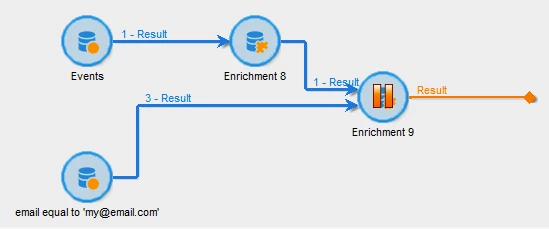Insert data from 2 different schemas and send to recipients
Hi,
I'm looking for the way to insert data from 2 data schemas into delivery and send it over to recipients. I'm able to gather all necessary information from these 2 tables, however I'm struggling with adding them into delivery.
Above there is a current set up. The issue I encountered is in Enrichment 9: My primary set is from query where I'm looking for email address (recipient schema). There is added a link (type 1N) to temporary schema (enrichment 8) and I can't select any matching source and destination expression to use a simple join.
Is it the way to combine data from 2 different schemas not linked with the recipient? Or maybe some workaround that will help to somehow reorganise the workflow?
Thanks for any suggestions.
Dominik